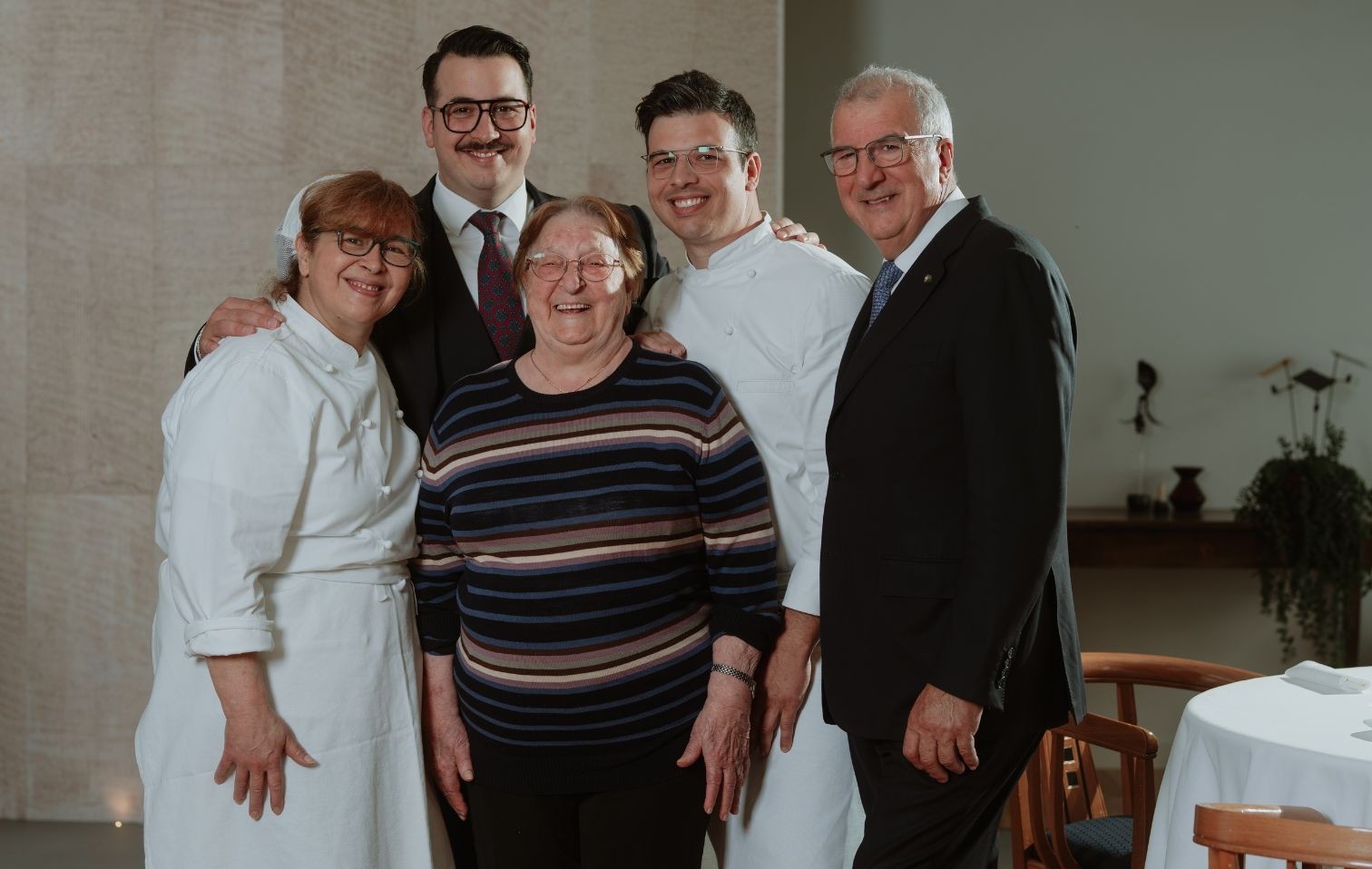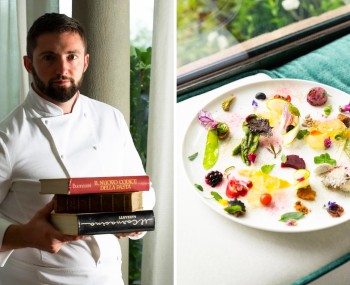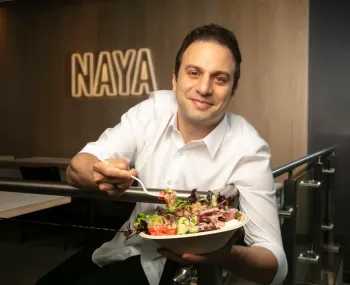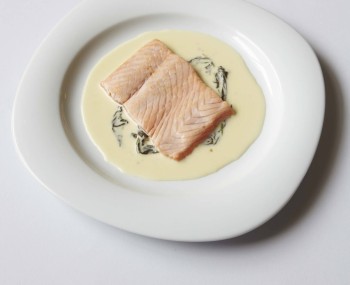From a flask shop opened in 1968 inside Maiella National Park, the Tinari family has gone on to win a Michelin star and the acclaim of critics who matter. But that's not all: fine dining here manages to be cross-cultural and inclusive.
The story
If you think people are fed up with haute cuisine, take a trip to Guardiagrele, because maybe you will change your mind. It is being talked about everywhere, in the last year you have read everyone's personal thoughts about fine dining in crisis and the possible causes of this phenomenon. The cities of reference are always Rome, Milan or Florence, but are the big centers really the thermometer of haute cuisine? The impression is that elsewhere it is not difficult to find oneself sitting in rooms full of people laughing relaxed, and the Villa Maiella, in Guardiagrele, is one of the most excellent examples of this.
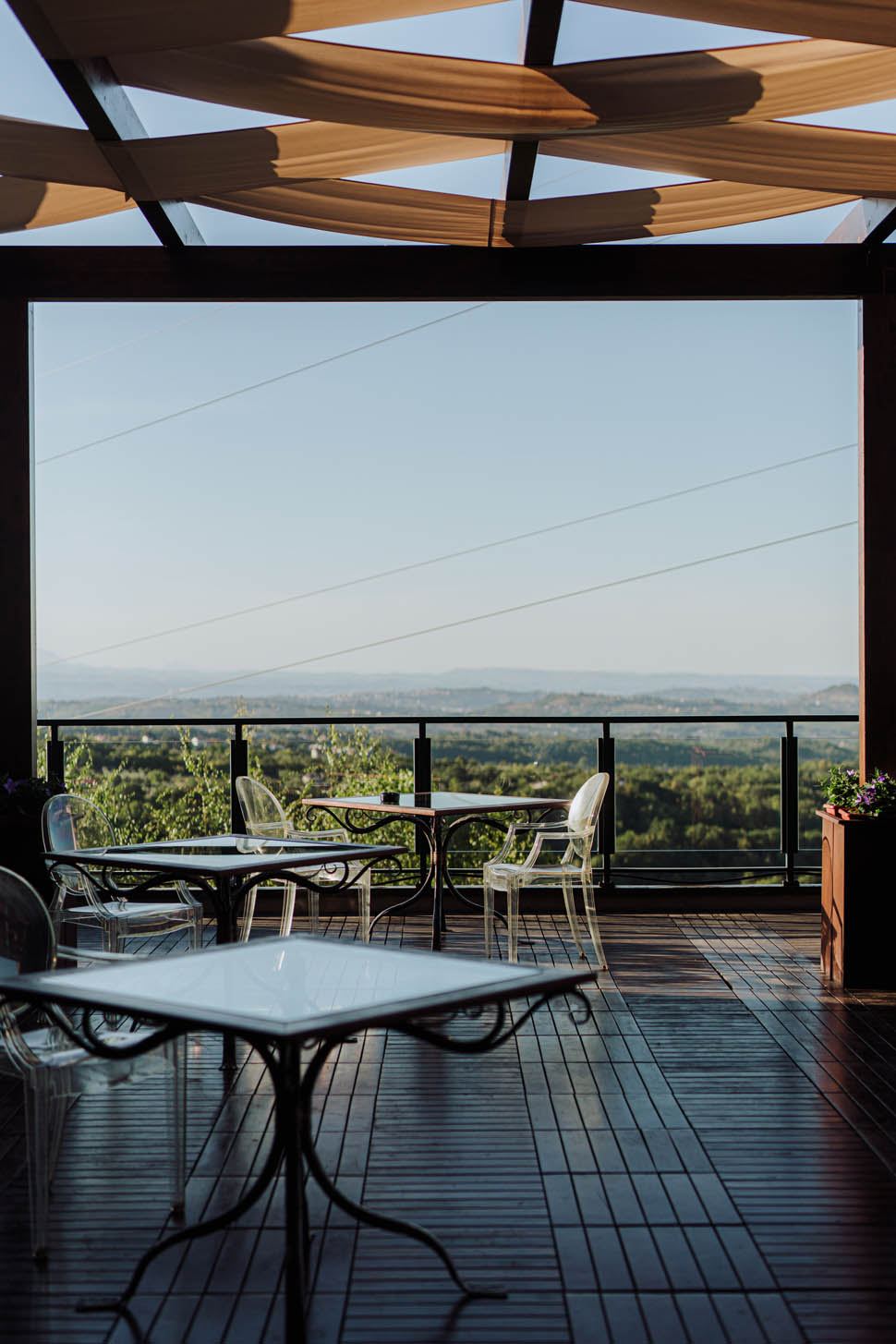
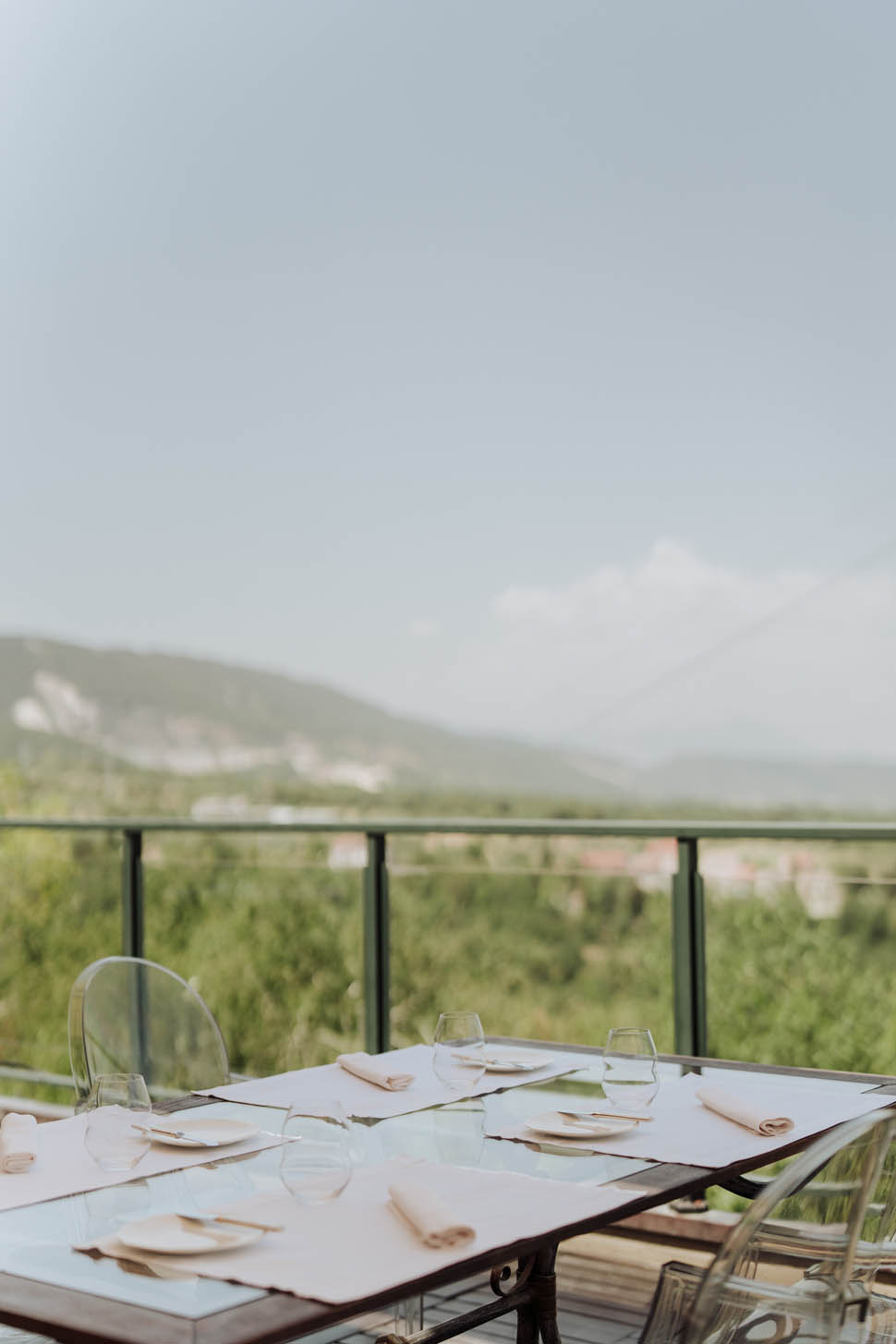
While around the world 1968 overturned the cultural foundations of society, in Guardiagrele the Tinari family opened a flask shop in Maiella National Park. The revolutions of those years marked a controversial contemporaneity, made up of many confused ideas and few precise points of reference, but the 1970s were also those of Gianluigi Morini of the San Domenico in Imola, of cuisine stolen from the Franco-Russian aristocracy with filet à la Voronoroff or à la Wellington, of a territorial gastronomy brought to luxury in the kitchens of Sabatini in Florence, Savini in Milan or the Baglioni in Venice and the Principe di Piemonte in Turin.
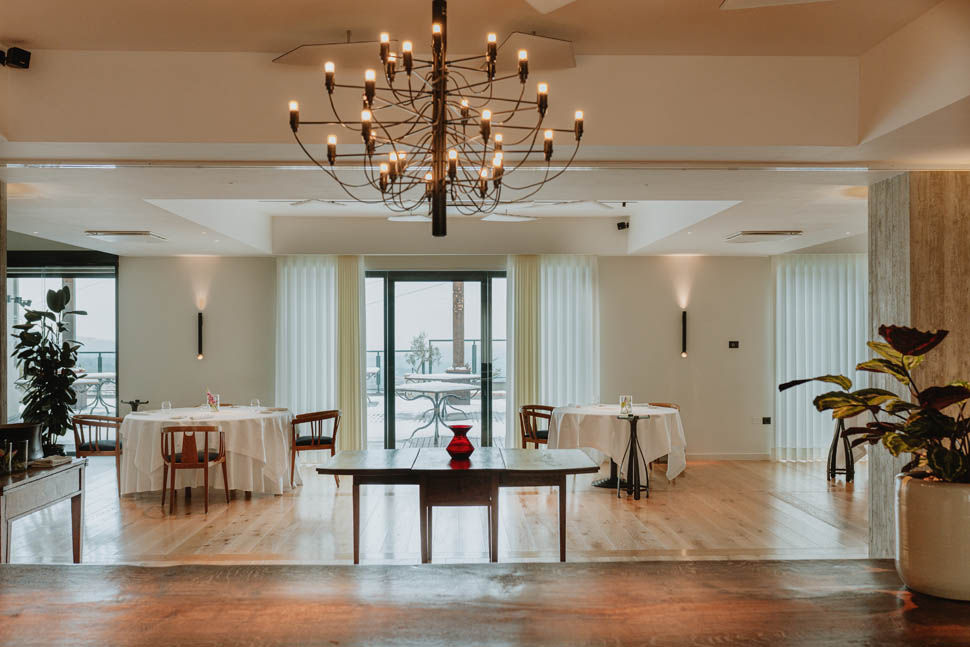
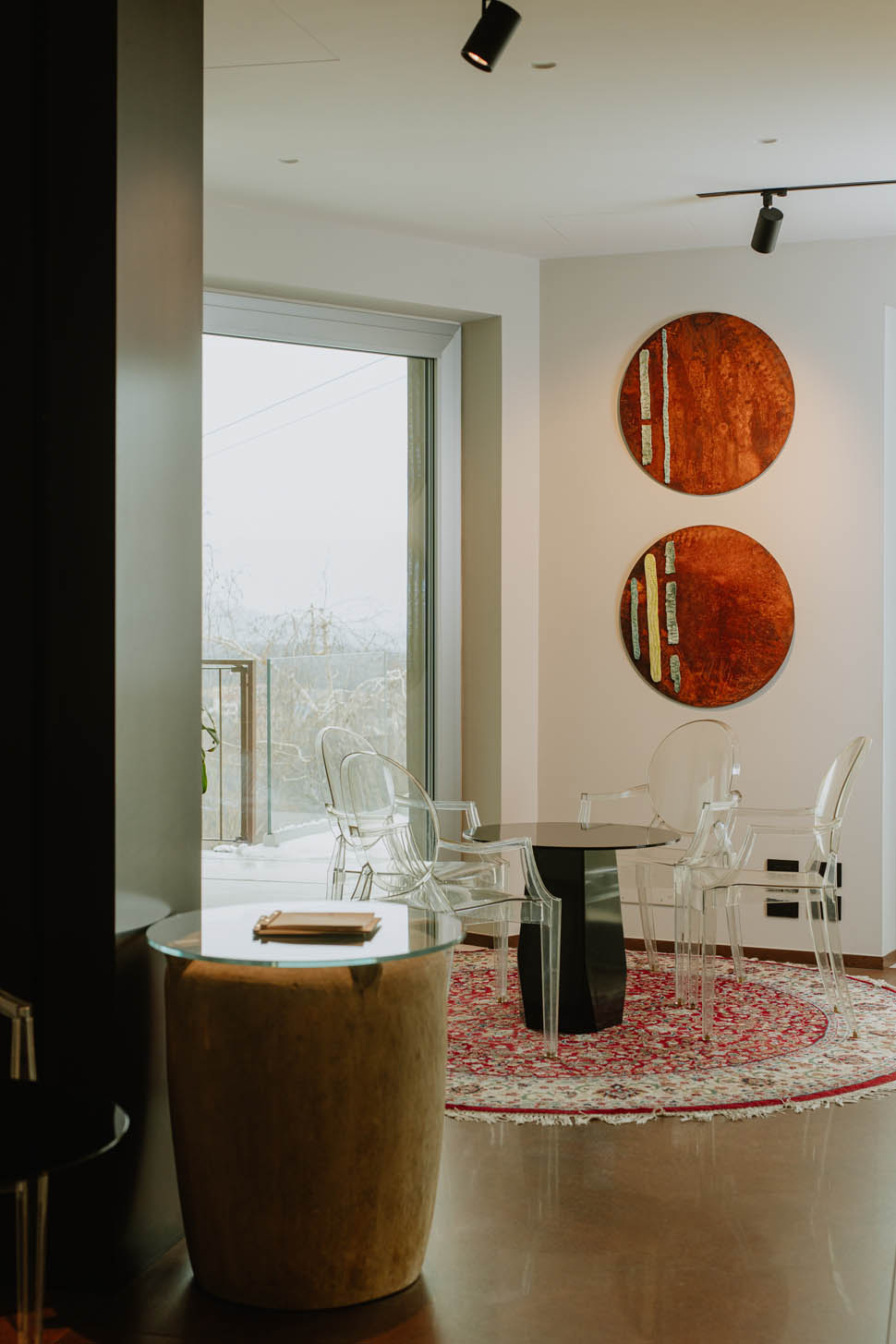
Those years saw the birth of the Cesarina's cream tortellini in Bologna, and in Cipriani's Harry's Bar the tagliolini ripassati con besciamella, which would give rise to the fettuccine proposed by Alfredo in New York, were churned out. It was in this context that Nonna Ginetta cooked tripe, snails and sagne e fagioli on Via Sette Dolori in her birthplace, a story that still resonates in the halls of a Villa Maiella now in its third generation.
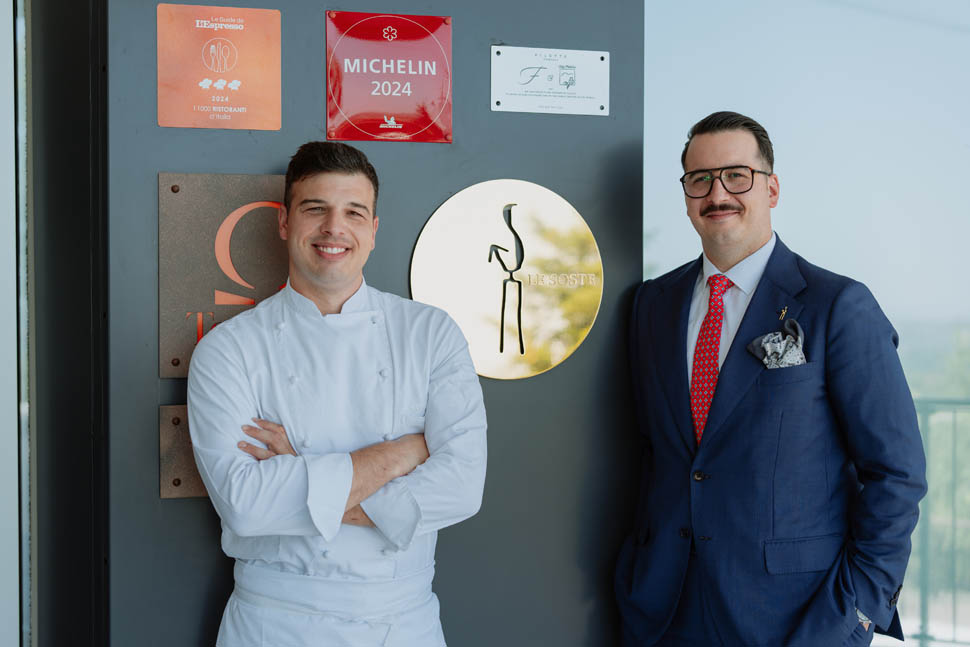
The restaurant
Arcangelo Tinari and Pascal Tinari are brothers, the former is in charge of the kitchen and the latter administers the reception of the dining room under the watchful eye of Papa Peppino. Thus the three Tinari's today enhance their Michelin Star received in 2009, without ever betraying the origins of which they remain proud ambassadors.
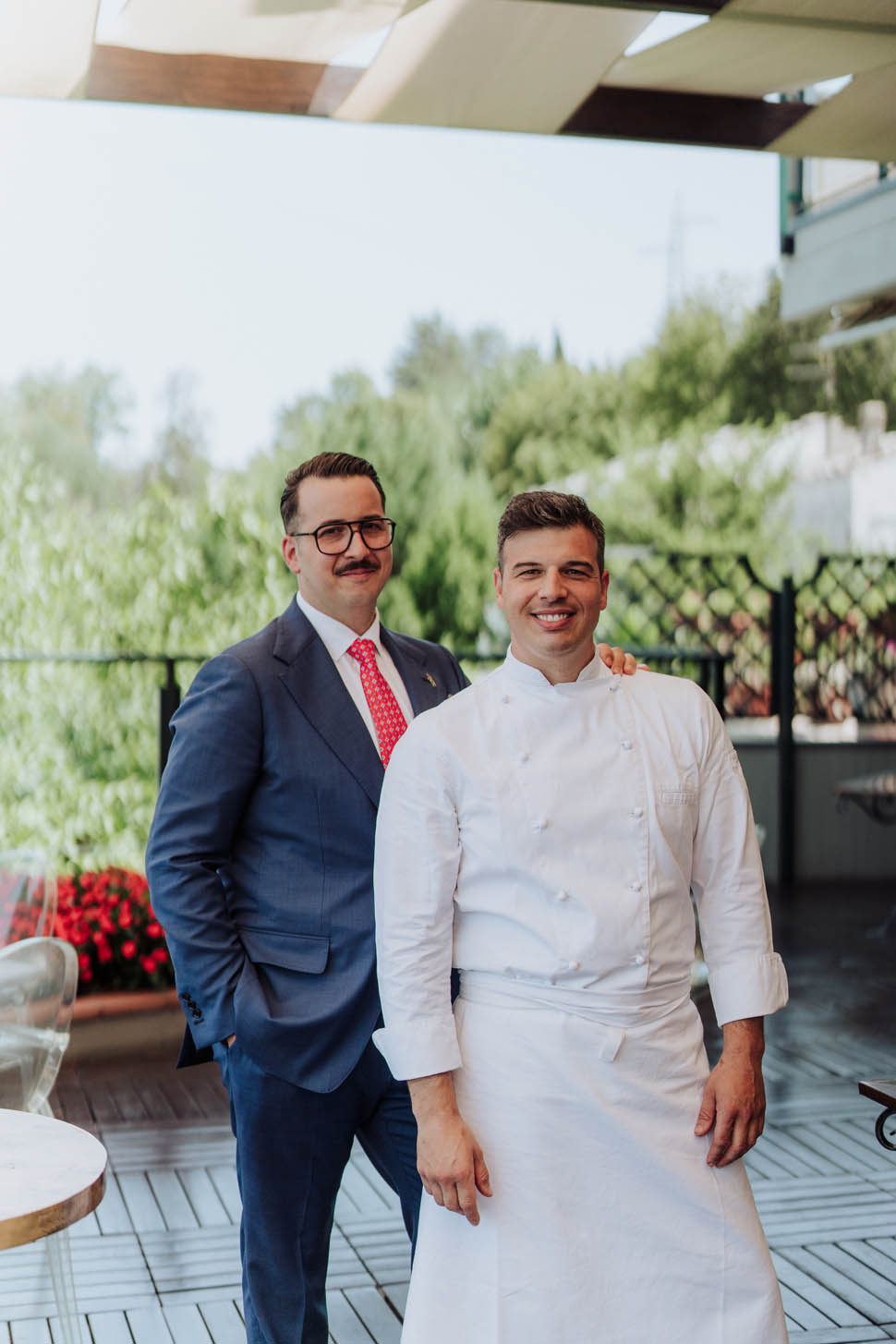
To go to lunch at the Villa Maiella, which is also a hotel, is to enter a bright, spacious space, cut out geometrically on the terrace level of the venue. The dining room thrives on a candid harmony that fills the spaces around the large, round tables inhabited, all on that occasion, by people with smiles. That harmony is felt, and the ease becomes an engaging benefit. Pascal has a motto for everyone, “you are at home.”
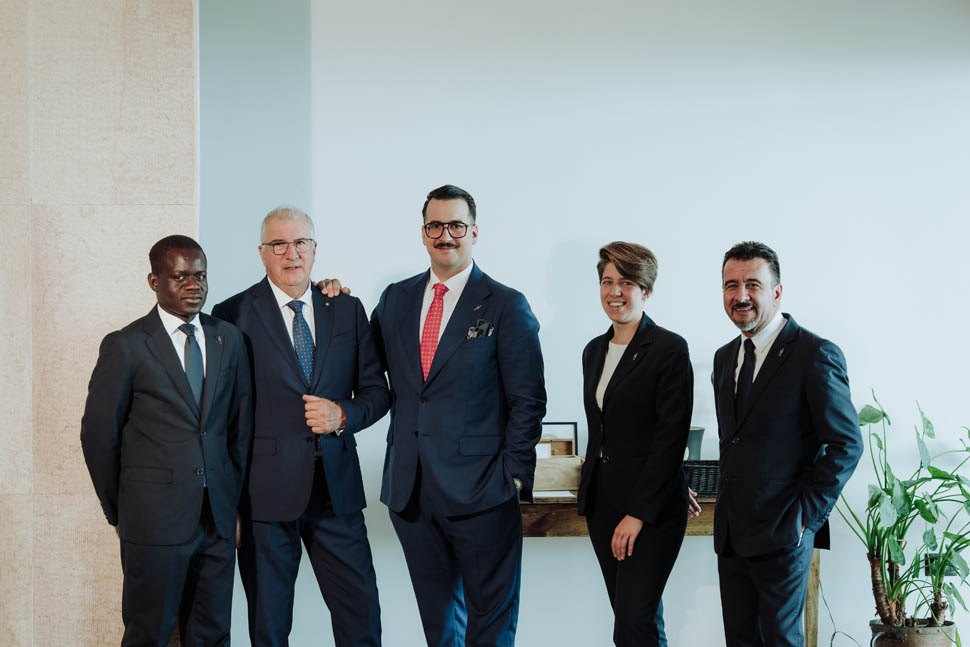
For those who love cuisine and gastronomy, after the stream of subjective words everywhere affirming and denying the success of this industry's high value, sitting down at Villa Maiella is first and foremost a reconciling experience. Here the guest is truly the center of attention and not the center of a vision. Here there is a sense that the focus is on hospitality and the utmost care, without any form of perceptual enhancement other than that of taste. Success is evident in an atmosphere that first infects you and later wins you over with dishes full of elegant substance.
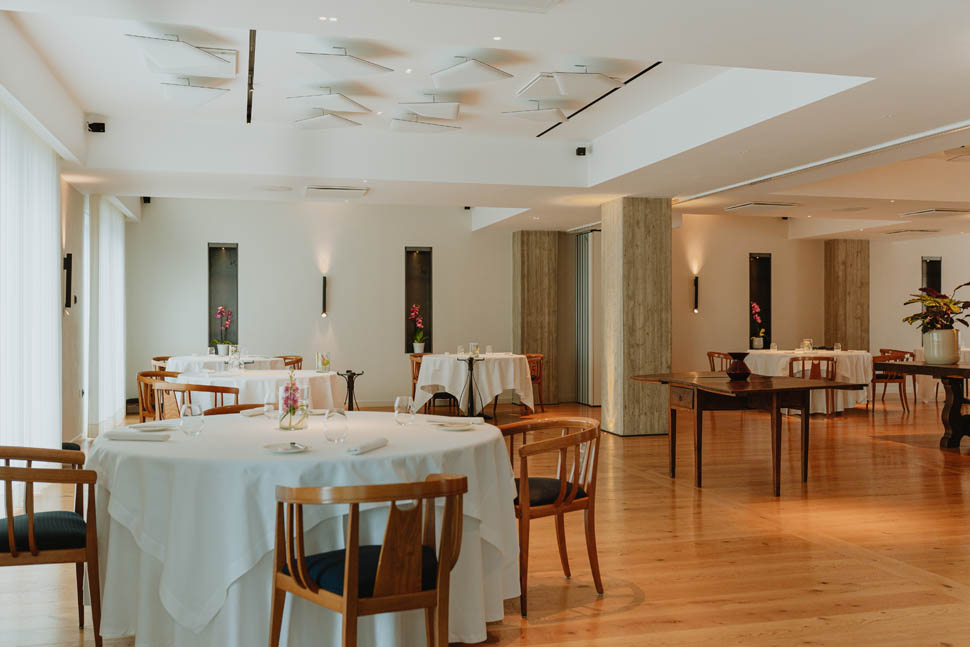
The dishes
The Chitarra of potatoes with Castel del Monte canestrato fondue is a tasty first course, enveloping and savory in its play of textures. Savoriness will be a constant in the dishes of the run, each time well defined and managed with balance in the use of ingredients naturally capable of being flavor enhancers, as in the Pear Tomato with Basil Pesto. Simple, but organoleptically complex and intense.
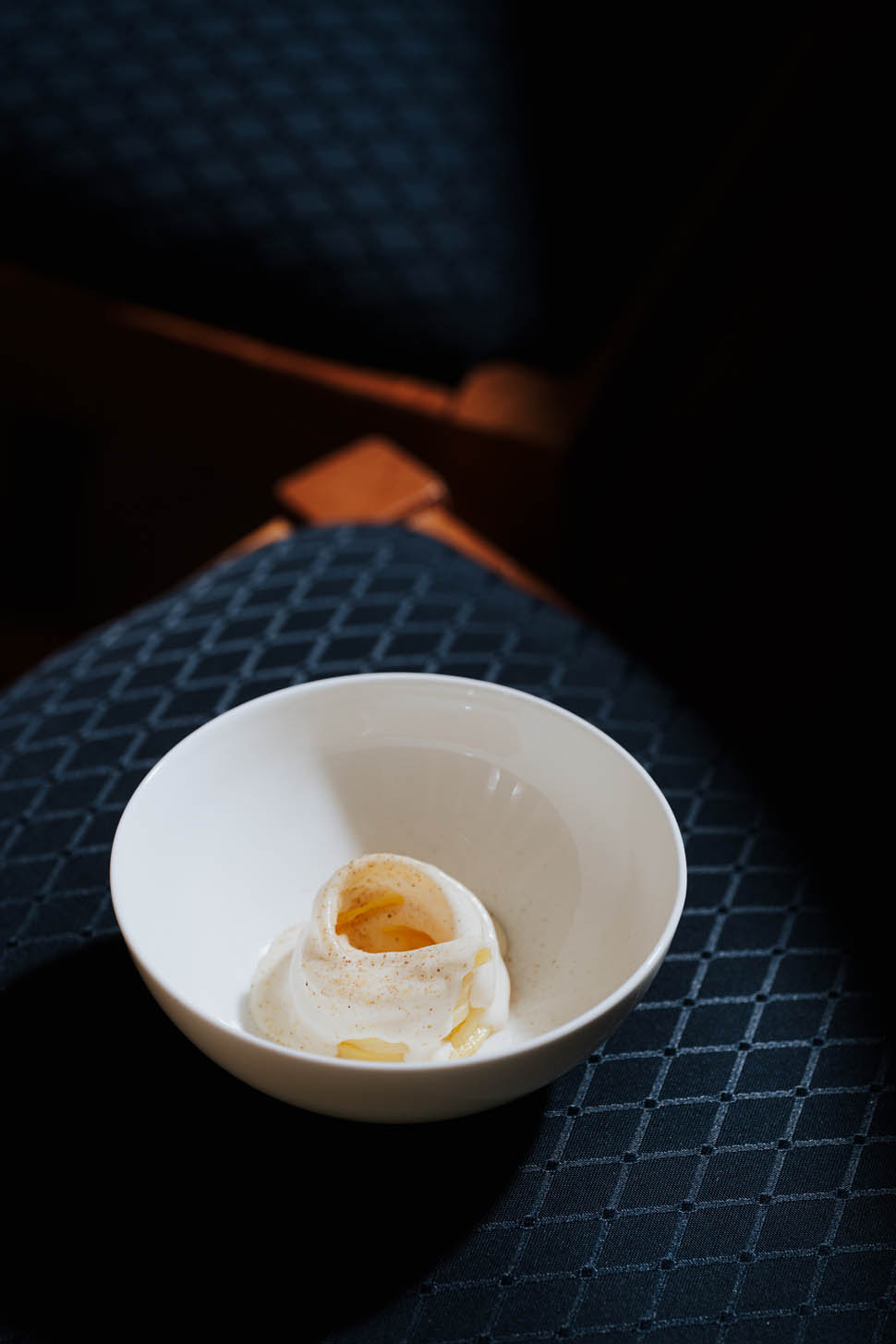
Surprising is the “Crudo di pecora”, (sheep tartare ), skewered in a stem of sanguinella in the style of an arrosticino, with inserts of black pork fat raised by them and flavored by a spoonful of aromatically spiced base, served with a creamed corn and with a finish between bitter, balsamic and spicy given by a wild mixed greens. Good Spelt mantecato with porcini mushrooms and truffle, enhanced by a side of gorgonzola cheese pushing on the lingering flavors.
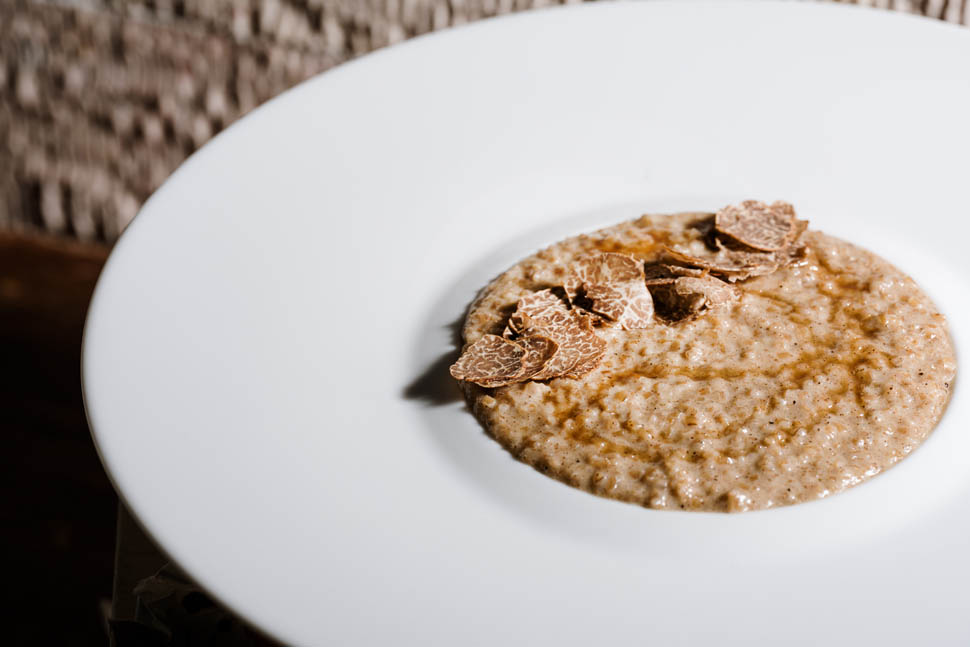
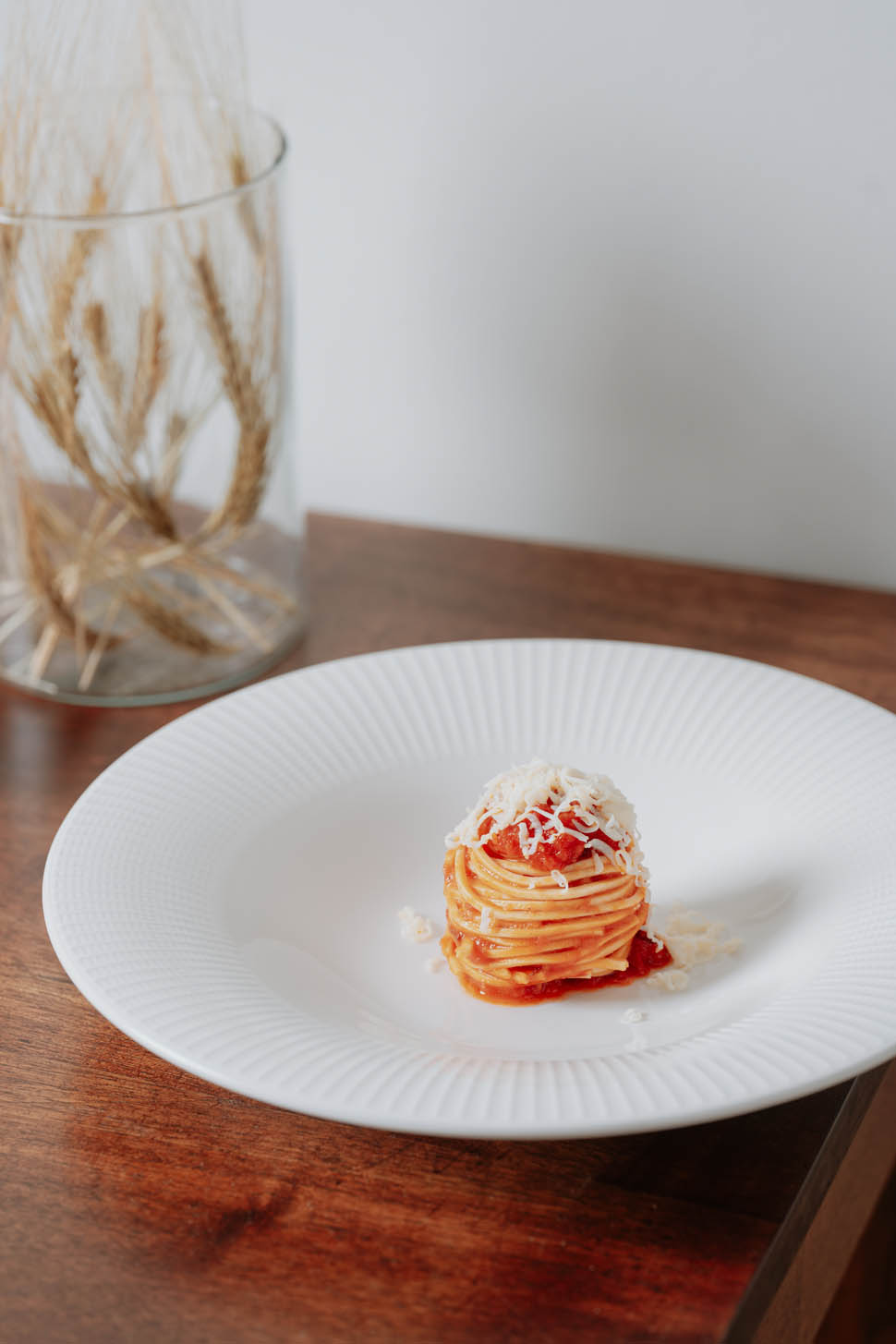
The Saragolla puff pastry with eggplant cream and Vacri snails is very elegant, while the Duck is a hit of flavor in perfect balance between fat and iron, served alongside a puffed barley that amuses with the sometimes excessive crunch. Again, the misticanza served on the side is the perfect closure in cleanliness. The dessert game brings to the table a plate of tomato gnocchi, with vanilla milk flakes served with confit cherry tomatoes and a sprinkling of basil.
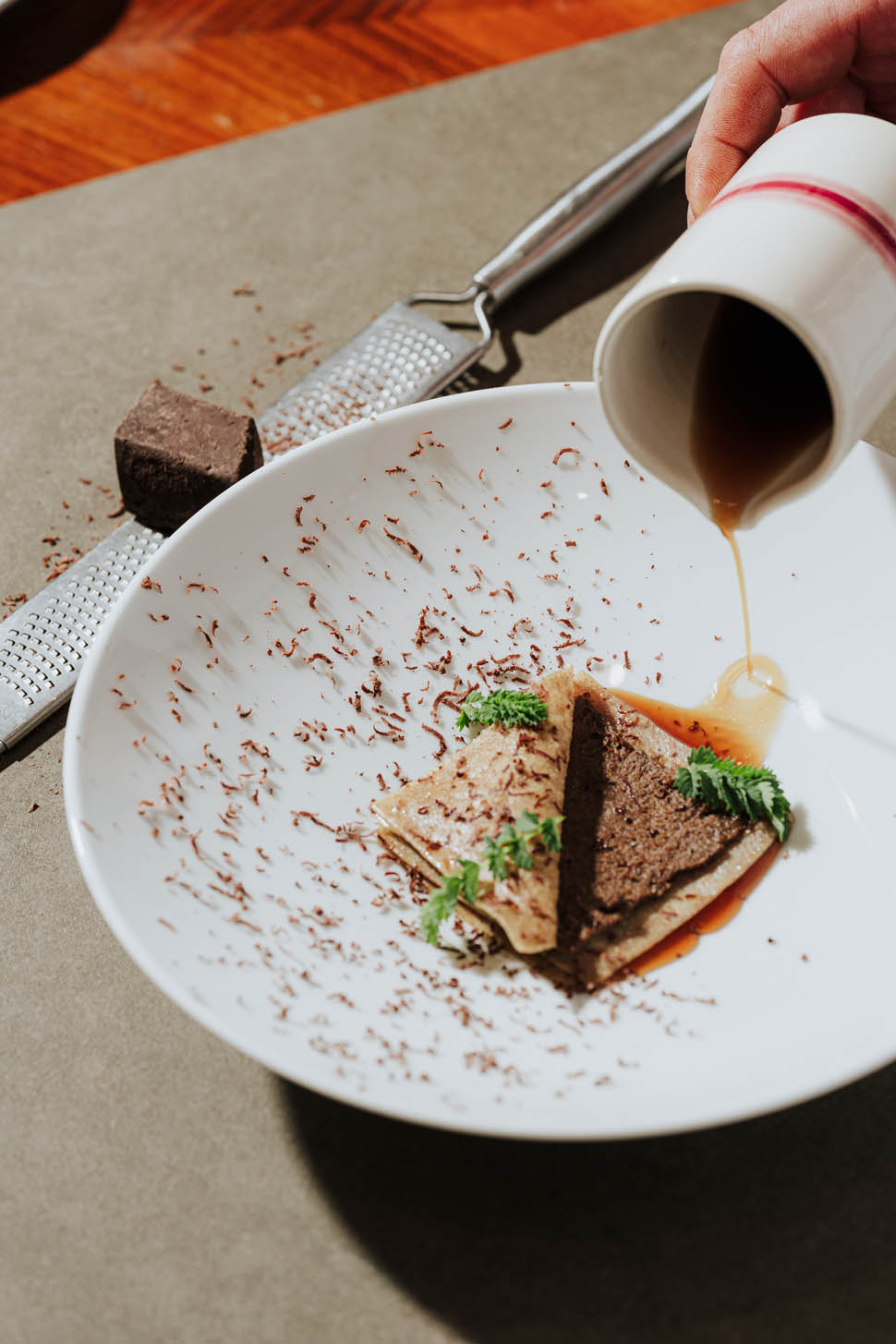
Arcangelo has a careful hand, and he manages to return satisfying flavor by putting together simple taste components in a complex way. There are three tasting itineraries on the menu and they all look to an Abruzzo made of strong mountains and gentle hills, with a strongly identity-based key to gastronomic expression. This, here as in other great ambassadors of regional cuisines in haute cuisine, means continuing to speak of tradition in fine dining rooms. A component that combined with that “you are at home,” said with the sincere smile of those who then show it to you, allows anyone to enter a dimension of ease that is well shaped around the elegance of the place. Nothing disheveled, gracefulness in every polite attention to geometric service, pleasantness of a time chosen to be intelligent.
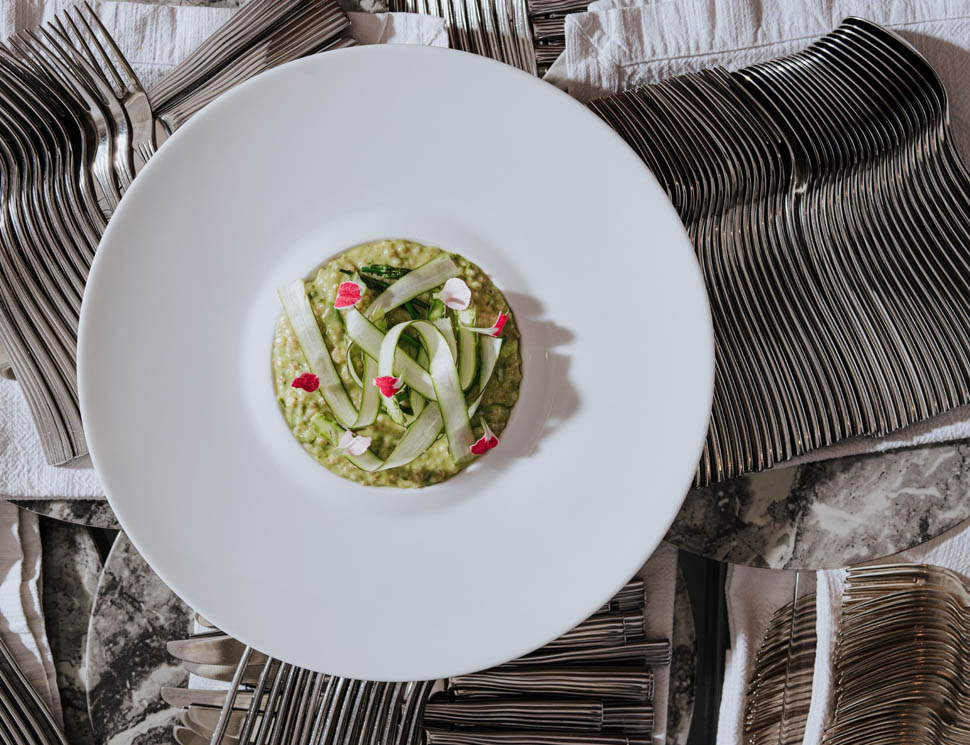
Peppino tells all the good reasons to go to Guardiagrele, Pascal follows with distinguished discretion those who are eager to know even one of the many stories that are part of the Villa Maiella, and Arcangelo wears the jacket of taste that you take away without even a sniff. I don't really know what the state of the art of haute cuisine is today, you read and see a lot of it and they are probably all right, however, one thing is tangible. If in the 1970s we used to get lost in big cities to eat a deglazed Madeira sausage while everything exploded with frenzy, today it happens that from that frenzy we increasingly feel the need to escape. They tire of stories that no longer have a story, and outside the great costs and incredible performance anxieties dictated by massive communication, with sought-after ease one can still find the good air and good (haute) cuisine that conquers all. As in Guardiagrele.
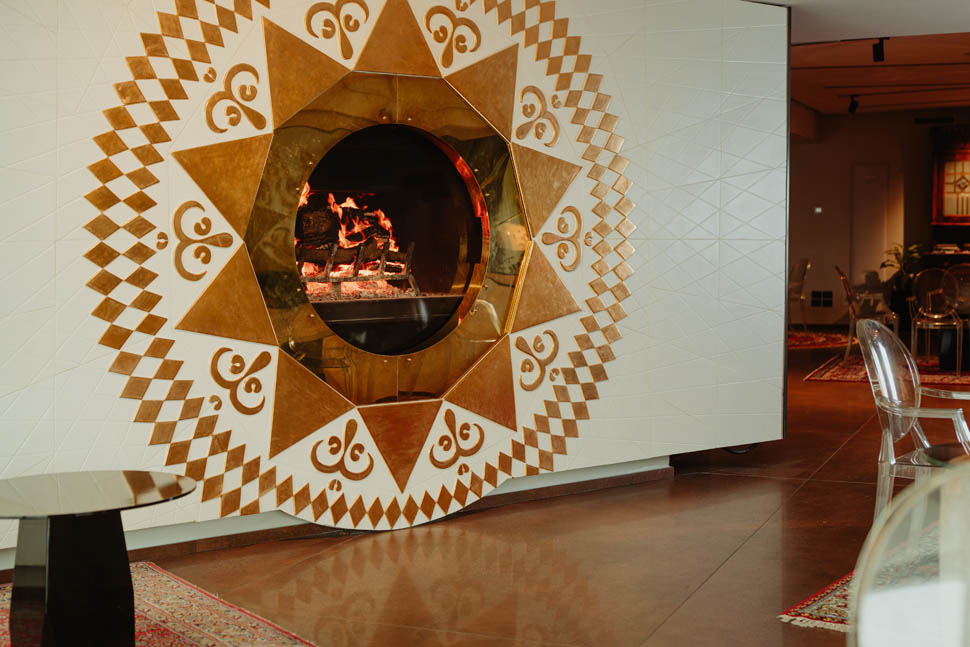
Address
Villa Maiella
Via Sette Dolori 30 66016 Guardiagrele, Abruzzo
Phone: 0871 809319
Website
